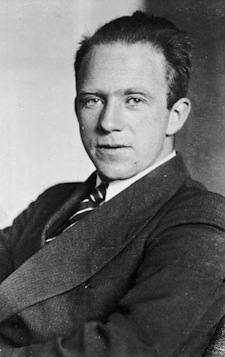 Evolution
Evolution
 Faith & Science
Faith & Science
Heisenberg on the Delusion of Scientism
"What we observe is not nature itself but nature exposed to our method of questioning." — Werner Heisenberg, Physics and Philosophy: The Revolution in Modern Science (1958)
 Here Heisenberg identifies the chief delusion of scientism, the delusion that the scientific method reveals truth in a way that other methods of knowing — metaphysical, logical, intuitive — don’t.
Here Heisenberg identifies the chief delusion of scientism, the delusion that the scientific method reveals truth in a way that other methods of knowing — metaphysical, logical, intuitive — don’t.
Philosophically quite literate for a scientist, Heisenberg follows Kant. We lack direct knowledge of the world as it is outside of our minds. We perceive phenomena — knowledge of the natural world filtered through our mind — rather than noumena, things as they are in themselves.
Scientism is a delusion. The scientific method will never lead us to the full truth about nature in itself. Scientific knowledge is inherently limited by our method of questioning. It does not — cannot — provide full certain knowledge of nature. It is inherently limited by our methods and by the ideological presumptions from which we draw our methods.
How then do we get closer to the truth about nature? We do so by acknowledging our bias, and working to ensure that our methods of studying nature don’t blind us to aspects of nature as it is.
Such self-blindness is most striking in the dogmatic atheism that afflicts most evolutionary biologists, who refuse to consider purpose in biology, which is replete with purpose. By eschewing causation other than an arid materialism, atheist scientists leave much of nature unexposed to their method of questioning.
Do theists suffer an analogous blindness? No. Most versions of theism acknowledge primary and secondary causes. Where inference to an intelligence behind nature is unnecessary to describe a natural process, none is offered. Where intelligence behind nature is manifest, the truth is acknowledged.
The wisest approach to the study of nature is to keep an open mind, and to eschew dogmatic metaphysical presumptions that prevent us from following the evidence.
Image: Werner Heisenberg/Wikipedia.
